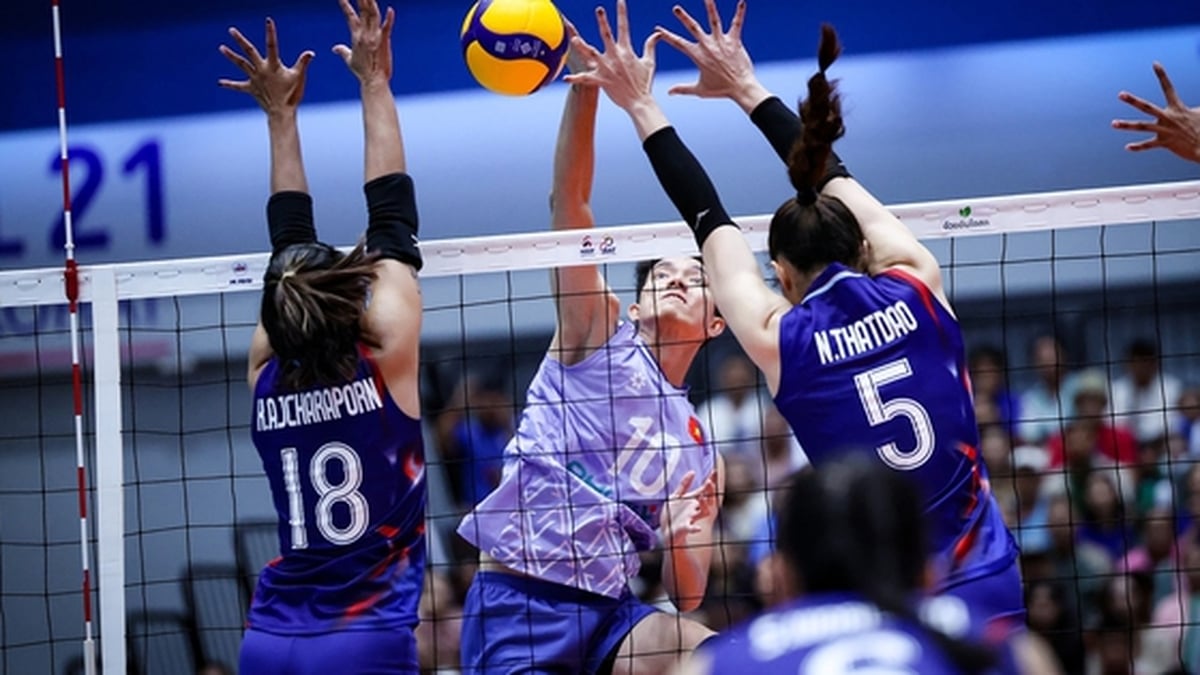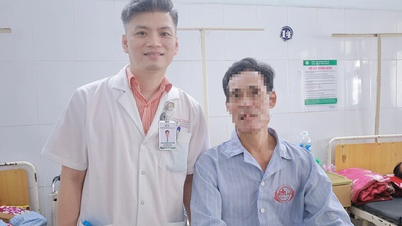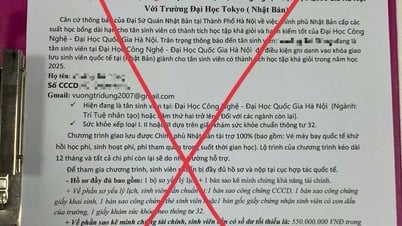Vaccination is considered a proactive and effective solution to protect public health. To ensure effectiveness and safety, people need to clearly understand the types of vaccines and take note before and after vaccination.
Dengue fever vaccine can cause some mild side effects such as swelling, pain, redness at the injection site, mild fever, fatigue, muscle pain, headache, which usually go away after 1-2 days. |
Currently, there are two widely licensed dengue vaccines: Qdenga and Dengvaxia. Qdenga, developed by Takeda Corporation (Japan), is a live attenuated vaccine that protects against all four dengue virus types with a prevention efficiency of over 80% and reduces the risk of hospitalization by up to 90%.
This vaccine is suitable for children from 4 years old and adults, especially useful for people who have had dengue fever to reduce reinfection and severe complications.
Qdenga has been deployed in community vaccination programs in countries such as Brazil, Argentina and Indonesia. Research and practice have shown that the vaccine is safe, with no increase in disease severity or risk of death.
From September 20, Vietnamese children will begin receiving the dengue fever vaccine developed by Takeda. The vaccination schedule includes two doses, three months apart, and can be administered at the same time as many other vaccines. Women should complete the vaccination at least one month before becoming pregnant.
Meanwhile, Dengvaxia by Sanofi Pasteur (France) is the world's first recombinant vaccine, only for people from 9 to 45 years old (or up to 60 years old depending on the country) and should only be injected into people who have been infected with the Dengue virus.
The regimen of 3 doses, 6 months apart, is about 60% effective. Therefore, serological screening before vaccination is mandatory to ensure safety.
Dengue fever vaccine may cause some mild side effects such as swelling, pain, redness at the injection site, mild fever, fatigue, muscle pain, headache, which usually go away after 1-2 days. Some rare cases may experience serious reactions such as anaphylactic shock, severe thrombocytopenia or prolonged inflammation at the injection site.
Therefore, the person receiving the injection should stay at the medical facility for at least 30 minutes after the injection for monitoring and timely treatment in case of any unusual reactions. When mild symptoms appear, the patient should rest, drink plenty of water, take antipyretics as prescribed and apply cold compresses to the injection site.
If you have a high fever above 39°C that does not go down, severe headache, rash, difficulty breathing, facial swelling or unusual bleeding, seek medical attention immediately.
Before vaccination, people need to undergo a thorough screening examination and postpone vaccination if they have a high fever or acute illness. People with a history of allergies to vaccine ingredients must notify their doctor. Pregnant or breastfeeding women need to be carefully counseled.
In addition, avoid using immunosuppressants or high doses of corticosteroids before and after vaccination because they can reduce the effectiveness of the vaccine. Choosing a reputable vaccination facility with an experienced team of doctors, modern equipment and the ability to handle anaphylactic shock is also very important.
Vaccination not only protects individuals but also helps reduce the risk of disease outbreaks in the community. Vaccination effectiveness depends on providing complete information, following instructions and choosing a reliable vaccination site.
According to Associate Professor, Dr. Pham Quang Thai (National Institute of Hygiene and Epidemiology), by mid-2025, Vietnam will record more than 20,000 cases of dengue fever and 5 deaths. There are about 3 million cases and 1,000 deaths worldwide.
Vietnam is among the countries with the highest prevalence rates in the Asia- Pacific region. Although the number of cases is not high compared to previous years, the rainy season has just begun, so the risk of rapid increase if drastic prevention measures are not taken. The increase in hospital admissions will overload the health system, with 20% of cases being severe and critical.
Lessons from Brazil show that when cases exceed 1-3 million, deaths also increase despite good health systems. Therefore, the goal of “zero deaths from dengue” can only be achieved by controlling cases from the beginning.
In Vietnam, the epidemic has not been in a stable cycle since 2017, with a high risk every year, with more than 140,000 cases in 2024 alone. The situation in 2025 depends on people's awareness, government actions and monitoring capabilities.
WHO ranks dengue fever among the top 10 global health burdens with the highest urgency. Controlling the source of infection is difficult because 80% of cases are asymptomatic or have mild symptoms but are still capable of spreading.
There is currently no specific treatment, the focus is on early detection and symptomatic treatment. WHO calls for increased communication, mosquito control, surveillance and vaccination.
Speaking more about dengue fever, MSc. Le Hong Nga (HCMC Center for Disease Control) said that the epidemic is no longer cyclical but increases steadily every year, especially at the end of the year, and the vaccine will help reduce the number of cases significantly. People still need to maintain preventive measures such as cleaning their living environment and sleeping under mosquito nets.
Dr. Nguyen Minh Tuan (Children's Hospital 1) said that many children hospitalized had severe complications such as shock, bleeding, and a high risk of death. The increase in severe cases may be due to the dominance of the DEN-2 virus type, along with the condition of overweight children and children with underlying diseases. The use of vaccines will reduce the burden of disease, reduce hospitalizations and complications, avoid overloading the health system, and help focus resources on treating other diseases.
Doctor Bach Thi Chinh (VNVC) said that Dengue virus has 4 different serotypes, a person can get infected with different serotypes many times, the next time can be more severe than the first time due to temporary immunity. Dengue fever can cause dangerous complications such as low blood pressure, heart failure, kidney failure, hemorrhagic shock, multiple organ failure, cerebral hemorrhage, coma. The stage when it is likely to get worse is when the fever goes away (days 3-5).
Young children, pregnant women, people with chronic diseases, and obesity are at higher risk. Pregnant women are also at risk of fetal distress, premature birth, and stillbirth. Every year, Vietnam records hundreds of thousands of cases and dozens to hundreds of deaths.
Source: https://baodautu.vn/tiem-vac-xin-ngan-ngua-sot-xuat-huyet-bung-phat-manh-d307062.html
































![[Photo] Nghe An: Provincial Road 543D seriously eroded due to floods](https://vphoto.vietnam.vn/thumb/1200x675/vietnam/resource/IMAGE/2025/8/5/5759d3837c26428799f6d929fa274493)



































































Comment (0)